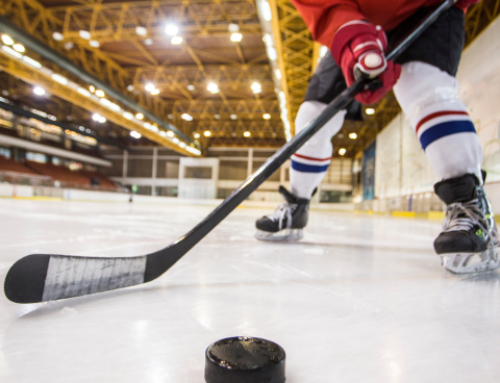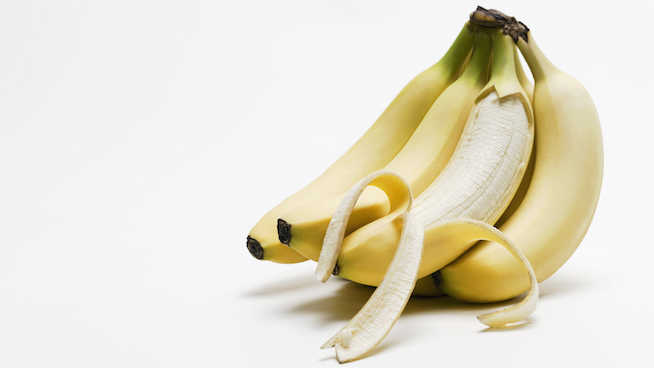Hydration is known to be a definite determinant of endurance exercise performance. However, little is known about the effects it poses on resistance training performance.
Factors ranging from the food you eat to the climate you live in could impact your hydration status making recommendations tough for many experts.
This article will dive into the science behind hydrating and its impact on resistance training, specifically with some useful tips regarding potential avenues to target when trying to optimize your training sessions.
Is Hydration Actually Important?
Yes! Hydrating is important for a multitude of reasons—from proper cell function to waste removal and metabolic reactions. With the average human body being composed of anywhere from 50-65% water, the reality is that our bodies require water to function.
Is Hydrating Important for General Performance?
Yes! As mentioned previously, much of the research has been performed in endurance-based sports, showing that dehydration can result in increased core temperature/heart rate, decreased stroke volume and increased time to fatigue, all of which could impact performance.
However, more recent research from Cheung et al in 2015 demonstrated that even a 3% body water loss in cycling athletes performing a 20-km, 2-hour time trial in heat showed no decreases in exercise performance.
Furthermore, training in a slightly dehydrated state has been used to drive adaptation in preparation for endurance-based events (triathlons, marathons) and in some cases has resulted in performance increases. So mild dehydration may not be such a bad thing!
Is Hydrating Important for Resistance Training?
That’s a million dollar question. Let’s look at the research.
According to Judelson et al (2007), there was little effect on single, maximal strength and power performance during the dehydrated states.
Individuals who are dehydrated during a resistance training protocol may not experience restricted performance while performing a single set of a given exercise.
However, when engaging in multiple sets in a given exercise (6 sets of Back Squats) there was an impairment in the ability to perform.
This graph displays total work completed after each set in the resistance challenge exercise. Between the three groups euhydrated (EU), hypohydrated at 2.5% (HY25) and hypohydrated at 5.0% (HY50) there is an evident drop in total work completed.
As an individual became more dehydrated, changes were evident in:
- The central nervous system (brain and spinal cord)
- Peripheral nervous system (nerves and nerve cells outside the brain)
- One’s ability to induce and stimulate muscular contraction
So what is considered an appropriate level of dehydration?
Dehydration to a 4.8% body mass level has a compelling effect on one’s ability to carry out a resistance training protocol.
Moderate Dehydration of 2.4% body mass decreased multi-set performance in terms of resistance training protocols.
We know now that dehydration could harm performance in the gym, so what are the recommendations?
Much of the research as mentioned occurs during endurance-based events often performed in sweltering heat and humid conditions.
The truth is most of the gyms in North America and across the world provide us with air-conditioned facilities where excessive heat and humidity aren’t necessarily a concern. There are obviously exceptions.
As an example, a study by Racinais et al (2015), recommends consuming 6 ml of fluid for every kilogram of body weight prior to a 2-3 hours event in heat.
For a 90kg individual this is only about half a liter of water (540ml).
So to suggest that this recommendation would be the same for athletes or the average gym goer training in an air-conditioned environment is highly debatable.
Fluid Recommendations for Resistance Training in Summary:
Due to the overwhelming amount of variables that contribute to one’s hydration status, a recommendation cannot be made from the research we have gathered.
It could be argued that hydrating is potentially over promoted by fitness professionals in a resistance training setting. It’s often heard of trainers preaching 1 L of fluid before a training session! That’s double the recommendation for athletes doing ironman’s in extreme heat!
The optimal fluid intake most likely lies somewhere between the average fluid recommendation for individuals and exercise in heated environments, it’s just not clear where the meeting point is.
Hydration is a massive topic of discussion with a lot of grey area. Until further research is done in the realm of resistance training, drinking to thirst might be best assuming you are not in an extremely hot environment and already dehydrated.
References:
Coyle, E. (1998). “Cardiovascular Drift During Prolonged Exercise and the Effects of Dehydration.” International Journal of Sports Medicine,19(S 2). doi:10.1055/s-2007-971975
Cheung, S. S., Mcgarr, G. W., Mallette, M. M., Wallace, P. J., Watson, C. L., Kim, I. M., & Greenway, M. J. (2015). “Separate and combined effects of dehydration and thirst sensation on exercise performance in the heat.” Scandinavian Journal of Medicine & Science in Sports, 25, 104-111. doi:10.1111/sms.12343
Judelson, D. A., C. M. Maresh, M. J. Farrell, L. M. Yamamoto, L. E. Armstrong, W. J. Kraemer, J. S. Volek, B. A. Spiering, D. J. Casa, and J. M. Anderson. “Effect of Hydration State on Strength, Power, and Resistance Exercise Performance.” Med. Sci. Sports Exerc., Vol. 39, No. 10, pp. 1817–1824, 2007.
Popkin, B. M., Danci, K. E., & Rosenberg, I. H. (2010). “Water, hydration, and health.” Nutrition Reviews, 68(8), 439-458. doi:10.1111/j.1753-4887.2010.00304.x
Racinais, S., Alonso, J. M., Coutts, A. J., Flouris, A. D., Girard, O., González-Alonso, J., . . . Périard, J. D. (2015). “Consensus recommendations on training and competing in the heat.” Scandinavian Journal of Medicine & Science in Sports, 25, 6-19. doi:10.1111/sms.12467
READ MORE:
- High Powered Performance: Hydration Tips For All Athletes
- How Sports Hydration Affects Your Performance
- STACK Performance Nutrition: What Fluids are Best For Hydration
GoodLifeStudio/iStockPhoto
RECOMMENDED FOR YOU
MOST POPULAR
Hydration is known to be a definite determinant of endurance exercise performance. However, little is known about the effects it poses on resistance training performance.
Factors ranging from the food you eat to the climate you live in could impact your hydration status making recommendations tough for many experts.
This article will dive into the science behind hydrating and its impact on resistance training, specifically with some useful tips regarding potential avenues to target when trying to optimize your training sessions.
Is Hydration Actually Important?
Yes! Hydrating is important for a multitude of reasons—from proper cell function to waste removal and metabolic reactions. With the average human body being composed of anywhere from 50-65% water, the reality is that our bodies require water to function.
Is Hydrating Important for General Performance?
Yes! As mentioned previously, much of the research has been performed in endurance-based sports, showing that dehydration can result in increased core temperature/heart rate, decreased stroke volume and increased time to fatigue, all of which could impact performance.
However, more recent research from Cheung et al in 2015 demonstrated that even a 3% body water loss in cycling athletes performing a 20-km, 2-hour time trial in heat showed no decreases in exercise performance.
Furthermore, training in a slightly dehydrated state has been used to drive adaptation in preparation for endurance-based events (triathlons, marathons) and in some cases has resulted in performance increases. So mild dehydration may not be such a bad thing!
Is Hydrating Important for Resistance Training?
That’s a million dollar question. Let’s look at the research.
According to Judelson et al (2007), there was little effect on single, maximal strength and power performance during the dehydrated states.
Individuals who are dehydrated during a resistance training protocol may not experience restricted performance while performing a single set of a given exercise.
However, when engaging in multiple sets in a given exercise (6 sets of Back Squats) there was an impairment in the ability to perform.
This graph displays total work completed after each set in the resistance challenge exercise. Between the three groups euhydrated (EU), hypohydrated at 2.5% (HY25) and hypohydrated at 5.0% (HY50) there is an evident drop in total work completed.
As an individual became more dehydrated, changes were evident in:
- The central nervous system (brain and spinal cord)
- Peripheral nervous system (nerves and nerve cells outside the brain)
- One’s ability to induce and stimulate muscular contraction
So what is considered an appropriate level of dehydration?
Dehydration to a 4.8% body mass level has a compelling effect on one’s ability to carry out a resistance training protocol.
Moderate Dehydration of 2.4% body mass decreased multi-set performance in terms of resistance training protocols.
We know now that dehydration could harm performance in the gym, so what are the recommendations?
Much of the research as mentioned occurs during endurance-based events often performed in sweltering heat and humid conditions.
The truth is most of the gyms in North America and across the world provide us with air-conditioned facilities where excessive heat and humidity aren’t necessarily a concern. There are obviously exceptions.
As an example, a study by Racinais et al (2015), recommends consuming 6 ml of fluid for every kilogram of body weight prior to a 2-3 hours event in heat.
For a 90kg individual this is only about half a liter of water (540ml).
So to suggest that this recommendation would be the same for athletes or the average gym goer training in an air-conditioned environment is highly debatable.
Fluid Recommendations for Resistance Training in Summary:
Due to the overwhelming amount of variables that contribute to one’s hydration status, a recommendation cannot be made from the research we have gathered.
It could be argued that hydrating is potentially over promoted by fitness professionals in a resistance training setting. It’s often heard of trainers preaching 1 L of fluid before a training session! That’s double the recommendation for athletes doing ironman’s in extreme heat!
The optimal fluid intake most likely lies somewhere between the average fluid recommendation for individuals and exercise in heated environments, it’s just not clear where the meeting point is.
Hydration is a massive topic of discussion with a lot of grey area. Until further research is done in the realm of resistance training, drinking to thirst might be best assuming you are not in an extremely hot environment and already dehydrated.
References:
Coyle, E. (1998). “Cardiovascular Drift During Prolonged Exercise and the Effects of Dehydration.” International Journal of Sports Medicine,19(S 2). doi:10.1055/s-2007-971975
Cheung, S. S., Mcgarr, G. W., Mallette, M. M., Wallace, P. J., Watson, C. L., Kim, I. M., & Greenway, M. J. (2015). “Separate and combined effects of dehydration and thirst sensation on exercise performance in the heat.” Scandinavian Journal of Medicine & Science in Sports, 25, 104-111. doi:10.1111/sms.12343
Judelson, D. A., C. M. Maresh, M. J. Farrell, L. M. Yamamoto, L. E. Armstrong, W. J. Kraemer, J. S. Volek, B. A. Spiering, D. J. Casa, and J. M. Anderson. “Effect of Hydration State on Strength, Power, and Resistance Exercise Performance.” Med. Sci. Sports Exerc., Vol. 39, No. 10, pp. 1817–1824, 2007.
Popkin, B. M., Danci, K. E., & Rosenberg, I. H. (2010). “Water, hydration, and health.” Nutrition Reviews, 68(8), 439-458. doi:10.1111/j.1753-4887.2010.00304.x
Racinais, S., Alonso, J. M., Coutts, A. J., Flouris, A. D., Girard, O., González-Alonso, J., . . . Périard, J. D. (2015). “Consensus recommendations on training and competing in the heat.” Scandinavian Journal of Medicine & Science in Sports, 25, 6-19. doi:10.1111/sms.12467
READ MORE:
- High Powered Performance: Hydration Tips For All Athletes
- How Sports Hydration Affects Your Performance
- STACK Performance Nutrition: What Fluids are Best For Hydration
GoodLifeStudio/iStockPhoto














